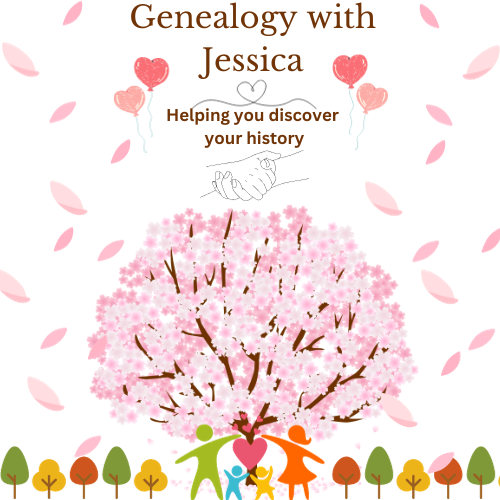Hello everyone, I hope you are all well. In today’s blog post, I am going to talk about Irish family history research. So, take the time to get comfy, grab a snack and a drink, and take this time to relax.
I will be walking you through different resources and what information they can provide for you, plus letting you know whether they are paid or free to access. Luckily, the majority of Irish family history resources are free to access, which is a huge help.
I hope that this blog helps you research your Irish ancestors, or even tells you about resources you weren’t aware of before.
Let’s get started…
Irish family history research has a reputation for being difficult. There are multiple reasons why Irish family history can be more difficult than other countries, including a lack of census records. Many of the Irish census records were destroyed, with only fragments surviving. The Irish census records that are currently available are 1901 and 1911. The Irish 1926 census will be available in April 2026. One positive though is that these records are free to access. Census records are available on the Irish National Archives website.
Alongside the census records I mentioned, there is also an army census which was taken in 1922. This was for all the people that were in the army, and provides information such as name, age, rank, corps, home address, relationship status, religion, next of kin and more. This record, along with other military records, can be accessed for free on the Irish Military Archives website.
Civil records are an important record set when researching ancestors in any country. They provide birth, marriage and death records which people registered with their government. Irish births were recorded from 1864, Irish marriages were recorded from 1845 if Non-Roman Catholic and 1864 if Roman Catholic and Irish death were recorded from 1871. These records are available to access for free on the Irish Genealogy website. The rule with these records is that they can be publicly available from 100 years after birth, 75 years after marriage and 50 years after death. They are typically updated on the website every year.
As well as civil records, there are church records available on this site but the selection is very limited. For a wider selection of church records, which include baptisms, banns, marriages and burials, a good website is the National Library of Ireland which is also free to access. This has original copies of the church records, with some being transcribed and uploaded to paid sites such as Ancestry and Findmypast.
A paid website that gives you access to transcripts of paid Irish family history records, including births, marriages, deaths, baptisms, banns, burials, census records and more is Roots Ireland. It is quite costly, but is worth it if you are wanting an easy way to search. This website has allowed me to find siblings of my ancestors, baptism records belonging to my ancestors and much more. They do occasionally offer deals, I recently saw one available for St Patrick’s Day.
There are more websites available which can help with Irish family history research, and I believe some counties in Ireland have their own Family History Societies. The way to find one for a specific county would be putting into google ‘(Your county) family history’ and looking at the results. For me, a lot of my ancestors are from County Leitrim, and I have been able to find a few websites that could help me.
There are also facebook groups which help with Irish genealogy, including county and town specific ones. I have had success in finding photos of my ancestors and places they lived in these groups.
Another website, which I personally haven’t tried but have heard is very good, is Irish News Archive. This gives you access to the archives of many newspapers across Ireland
Overall, Irish family history research can be more difficult than researching ancestors from other countries, but it is still possible, with the right resources. It is great that many of these resources are free to access as well.
I hope this post has helped you learn more about how to research your Irish ancestors. If you have any questions, feel free to ask in the comments. I also have many social media pages, where I often post genealogy tips and tricks. They are all linked in my linktree.
Thank you so much for taking the time to read and I hope you have a wonderful rest of your day!

Leave a Reply